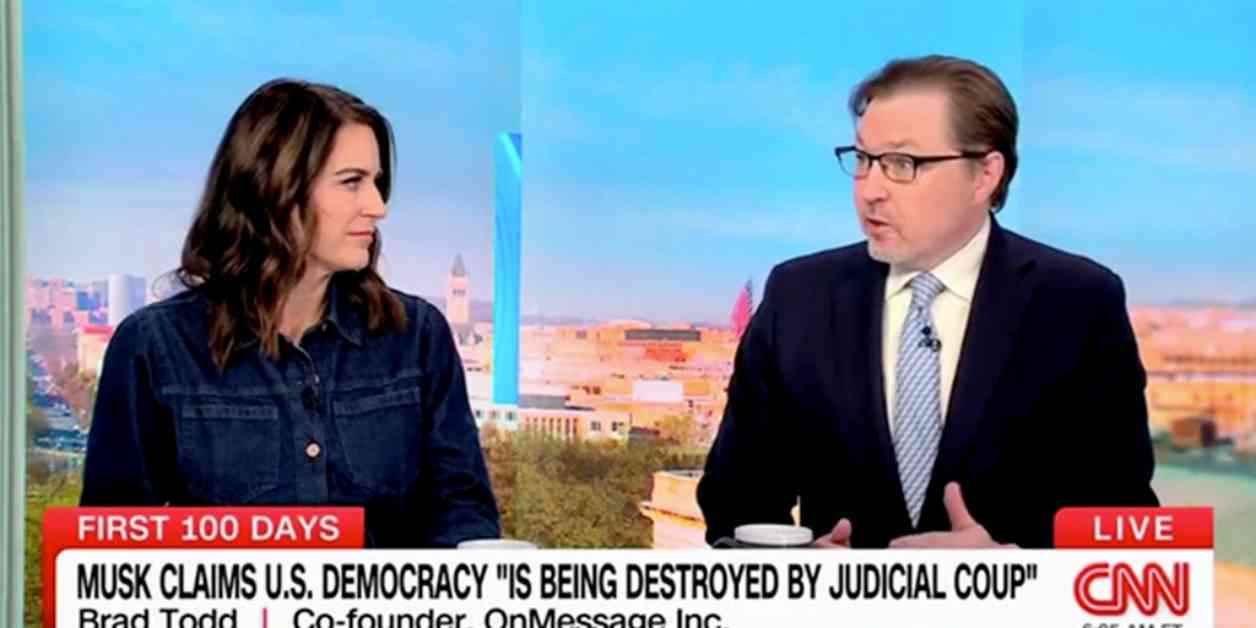Republican strategist Brad Todd recently criticized CNN for allegedly showing bias towards former President Biden and against President Trump during a panel discussion. Todd pointed out that CNN failed to question whether Biden was laying the groundwork to defy court orders, despite his past actions, while heavily scrutinizing Trump’s opposition to restraining orders on his executive actions.
Todd highlighted a previous incident involving Biden’s student loan forgiveness plan that had been struck down by the Supreme Court. He quoted Biden as saying, “I will stop at nothing to do this,” before proceeding to forgive $48 billion in student loan debt, seemingly in defiance of the court’s ruling. The panel on CNN, led by host Jim Sciutto, engaged in a heated debate following Todd’s remarks.
The Trump administration’s executive actions, such as freezing federal funding and restricting access to personal data by the Department of Government Efficiency (DOGE), faced legal challenges from Democratic attorneys general and several states. Sciutto questioned whether Trump’s actions signaled a potential disregard for future court rulings.
Amid the debate, Todd criticized CNN for treating Republican presidents differently from Democratic presidents in similar situations. He referenced Biden’s commission to expand the court and accused the former president and the Democratic Party of undermining the integrity of the Supreme Court over the years.
CNN legal analyst Elliot Williams countered Todd’s argument by emphasizing that while presidents have the right to challenge court orders and defend their rights, openly refusing to adhere to court decisions could pose a significant issue. Williams highlighted the importance of respecting the judiciary’s authority despite disagreements with its rulings.
Another CNN contributor, Alex Thompson, defended Trump’s actions as an attempt to push the boundaries of executive power, citing similar moves by past presidents like Obama and Biden. He argued that testing the limits of executive orders in court was a common practice among presidents throughout history.
The discussion on CNN underscored the ongoing political polarization and legal challenges surrounding executive actions taken by different administrations. The panel’s contrasting views shed light on the complexities of presidential authority and the role of the judiciary in upholding the rule of law.
In conclusion, the debate over Biden and Trump’s approaches to executive orders reflects broader tensions in American politics regarding the balance of power between the executive branch and the judiciary. As the legal battles continue, the implications of these conflicts on the country’s governance and democratic norms remain a topic of intense debate and scrutiny.


